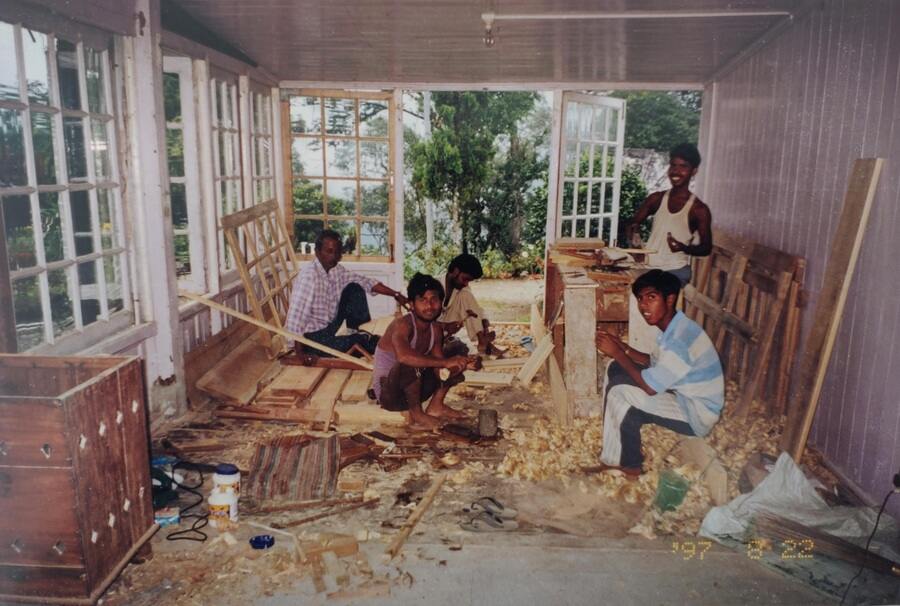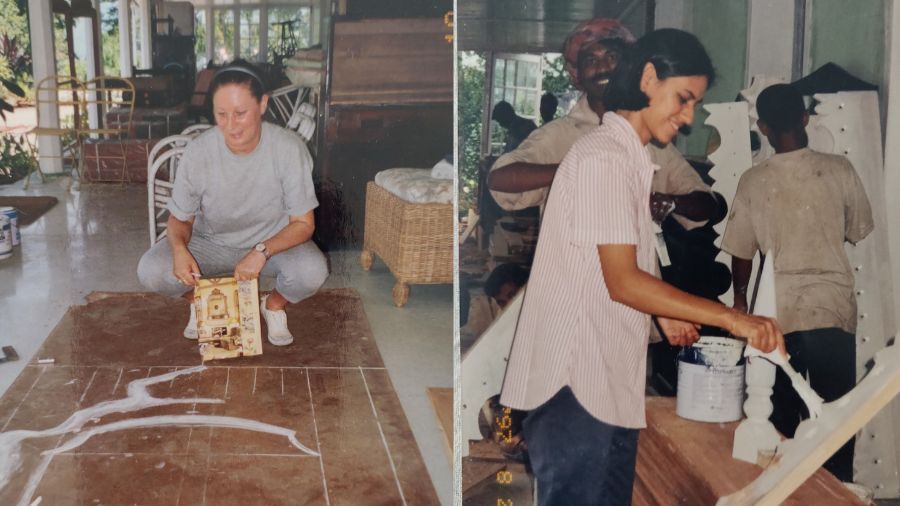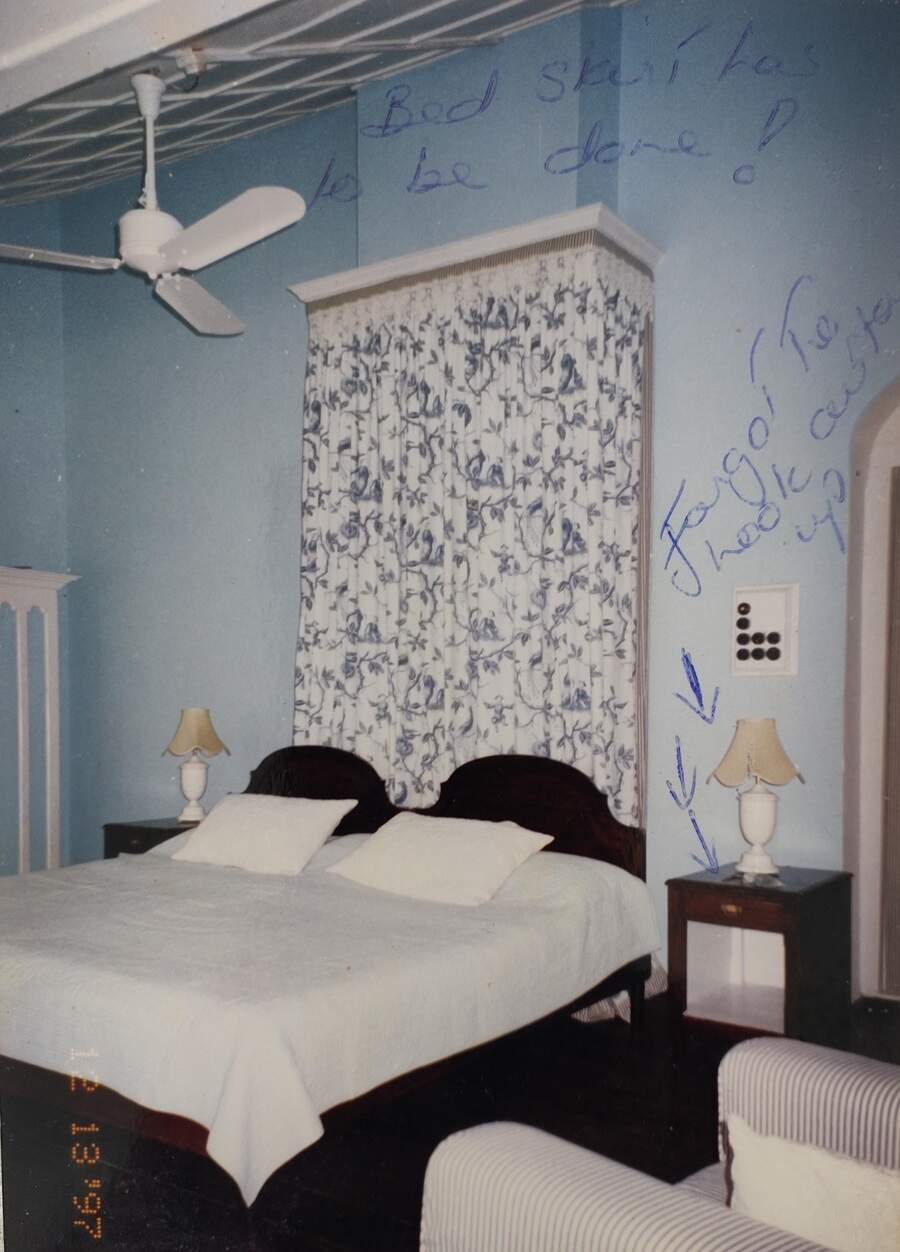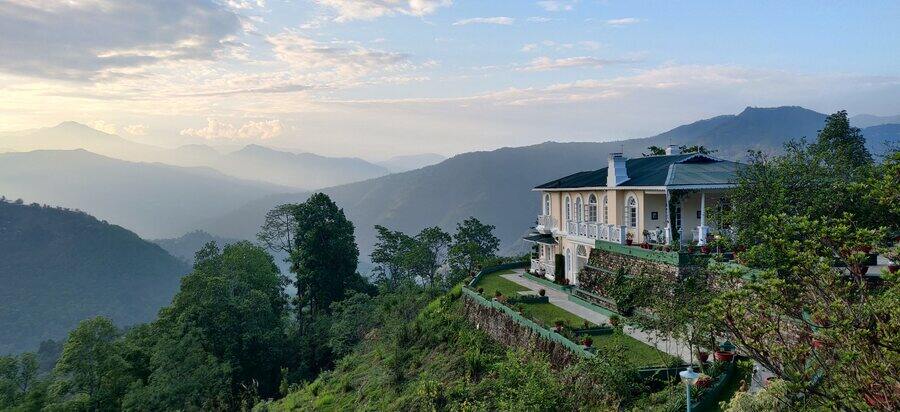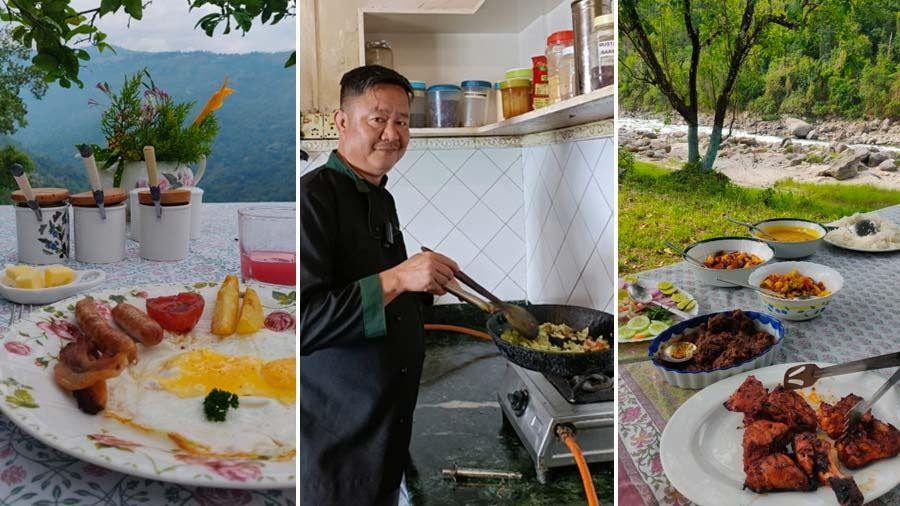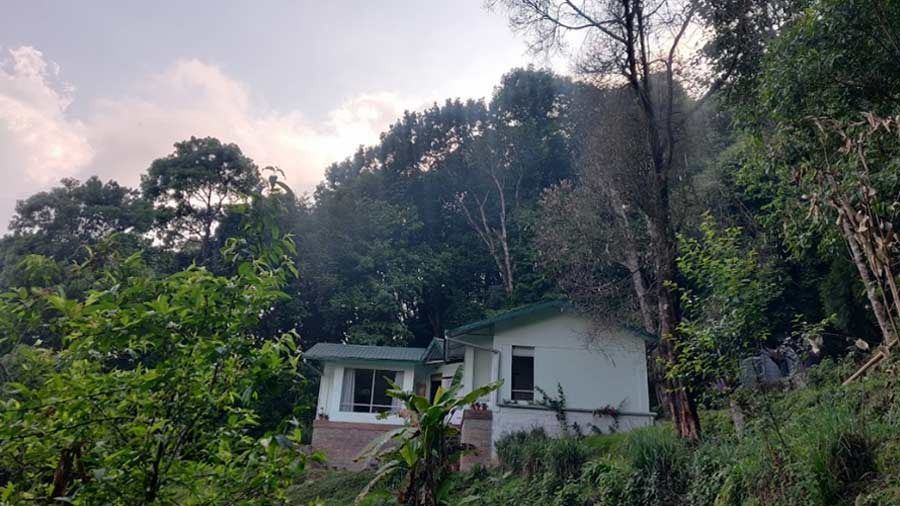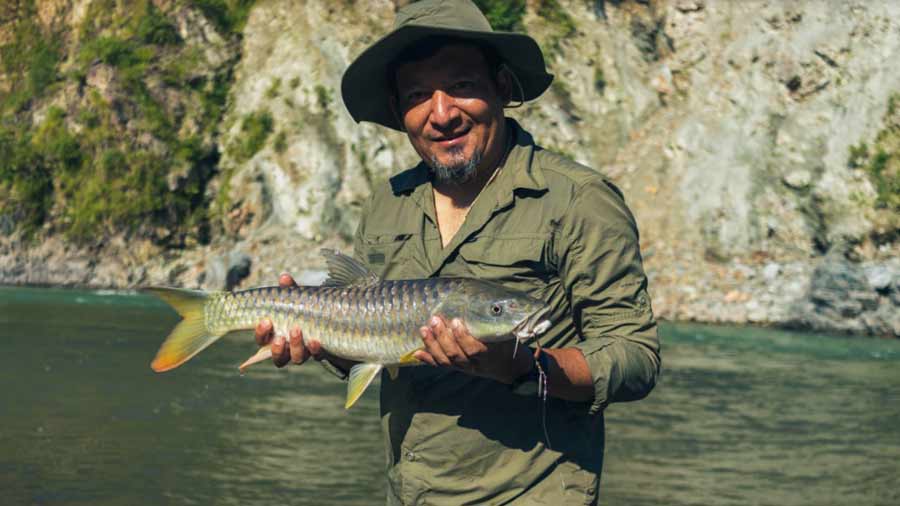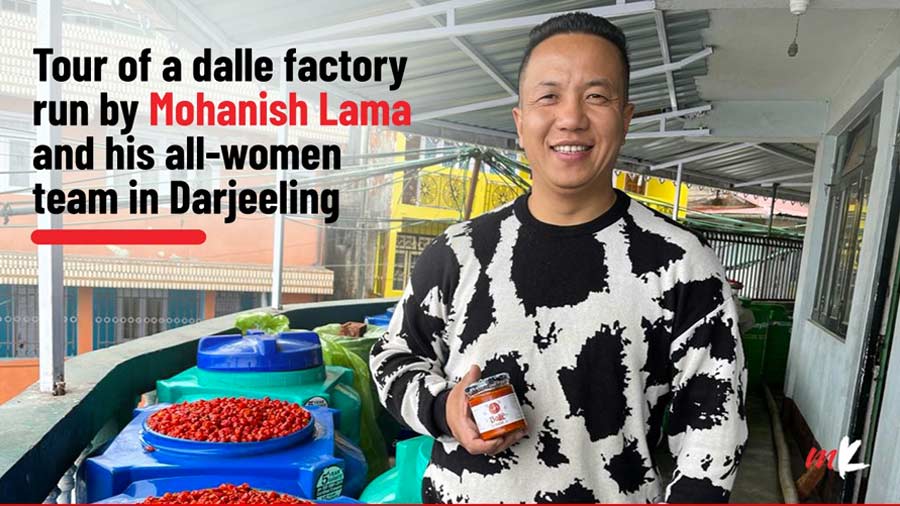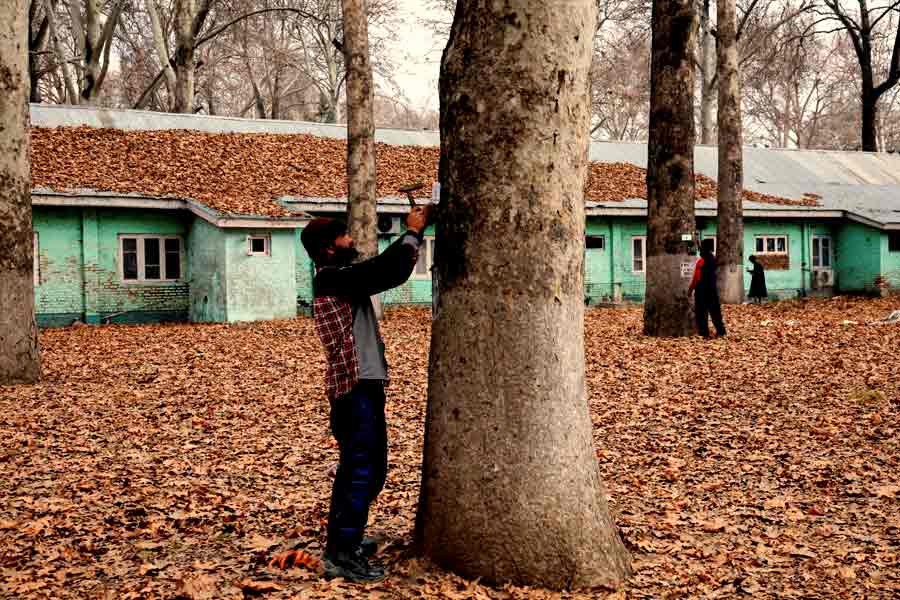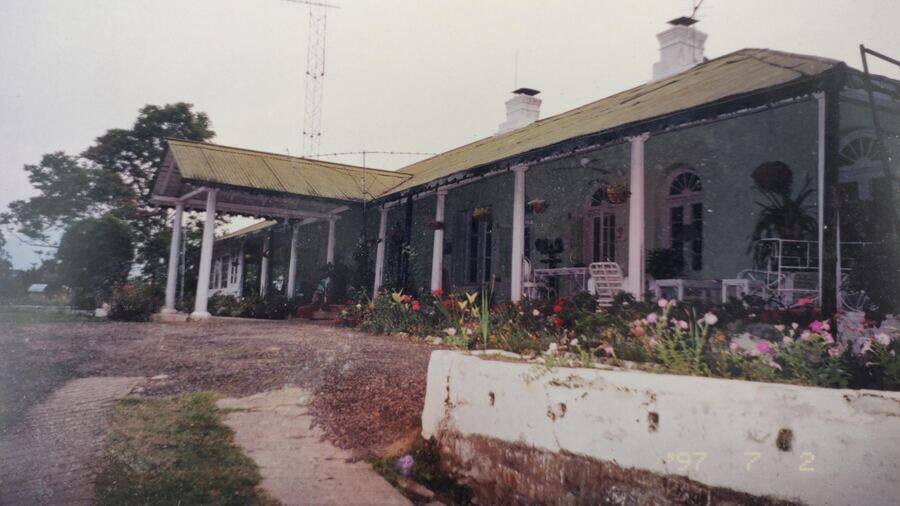
A photograph of The Burra Bungalow at Glenburn Tea Estate from 1997, before the building was restored into the luxury boutique hotel that it is today. The idea was inspired by French wineries that have chateaus for visitors to reside in. Only this one, near Darjeeling, would offer tea and tea experiences! Glenburn is sprawled across 1,600 acres, of which 780 acres is tea plantation and the rest is villages and reserved forest
Courtesy Glenburn Tea Estate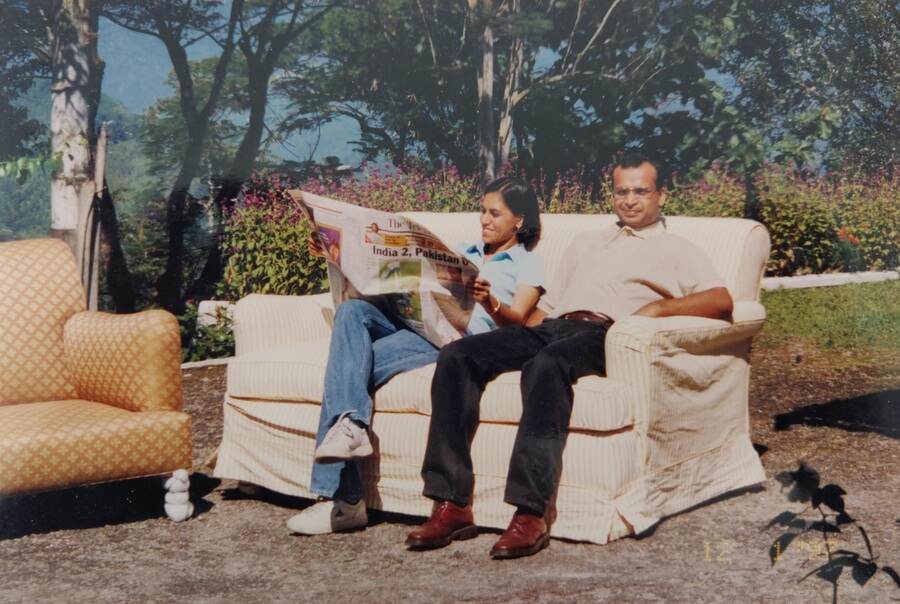
Started by a Scottish tea company in 1859, Glenburn passed into the hands of one of India’s leading tea planting families — The Prakashes — in 2001. They have, over the years, come to be known as the “Chaiwala family”. Seen here are Husna-Tara Prakash and husband Anshuman during the restoration years, reading The Telegraph
Courtesy Glenburn Tea Estate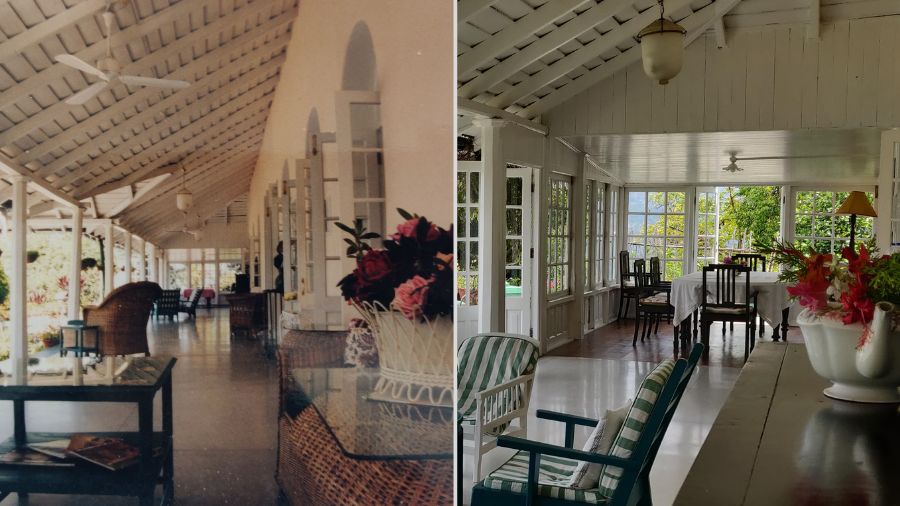
The main verandah of The Burra Bungalow offers a sweeping view of the Kanchenjunga range. It was restored in 2002 (left) conserving the style of a colonial planters’ bungalow, and retains the look two decades later (right) down to the fresh flowers and rattan chairs
Courtesy Glenburn Tea Estate, Karo Christine Kumar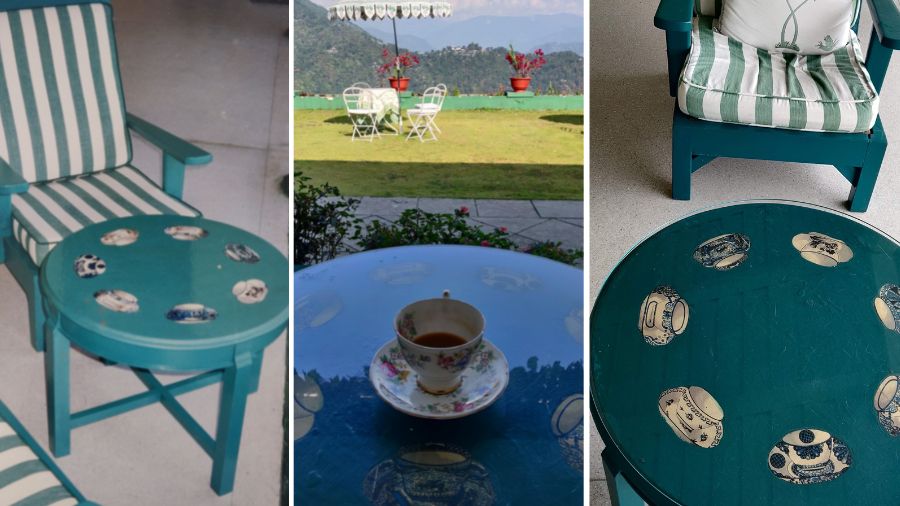
Brew with a view! The working tea estate produces some of the finest tea in the country. But that’s not the only thing that’s not changed. Here are pictures of one of Bronwyn's creations, a ‘tea table’ in the main verandah, photographed in (far left) 1997 and (far right) 2022, maintaining the look of a ‘planter’s bungalow’ with exact detailing
Courtesy Glenburn Tea Estate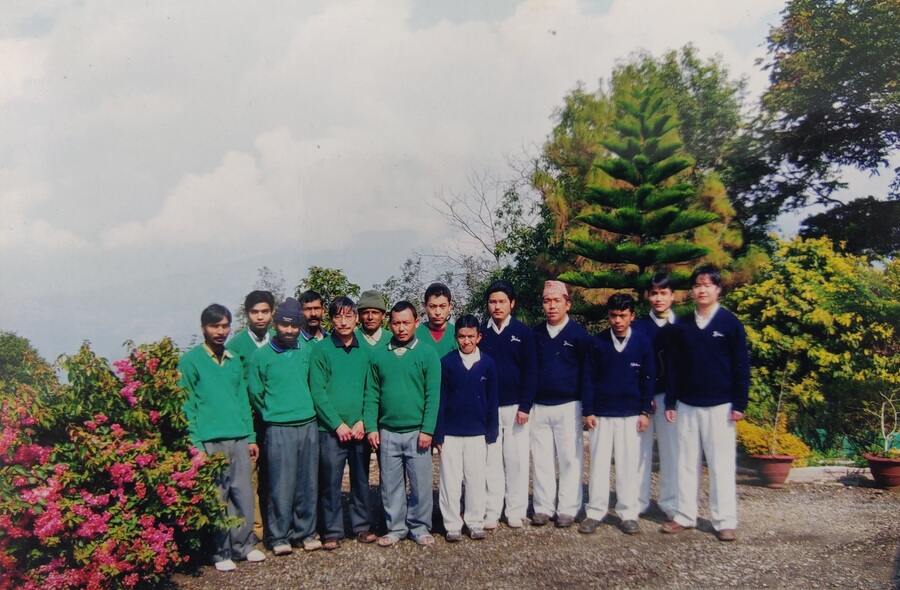
A picture of the Glenburn staff from the early years. On the far right is Sabin Mukhia, who is a third-generation Glenburn resident, now the head chef at the plantation retreat. He was born and brought up in Shikari Dura, one of the eight villages in Glenburn. His grandfather Bikram laid the foundation of the gardens around the Burra Bungalow
Courtesy Glenburn Tea Estate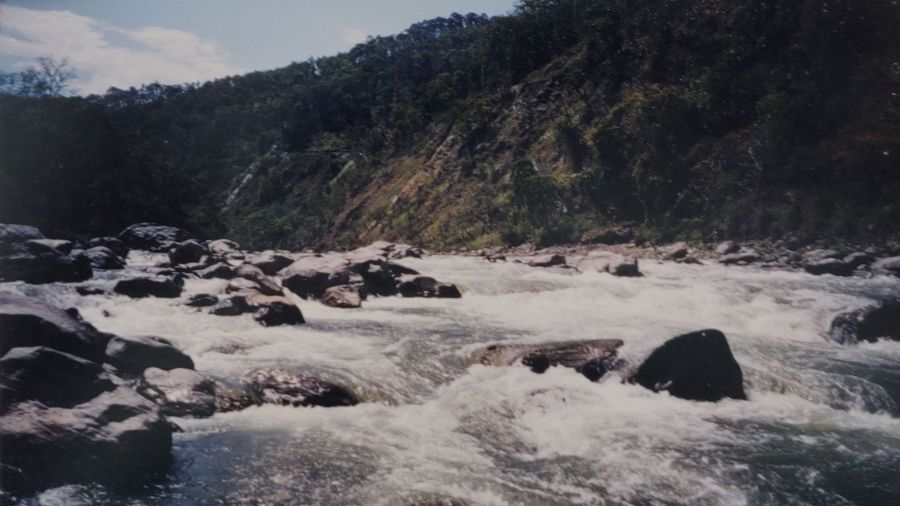
The story of Glenburn is incomplete without mentioning the snow-fed Himalayan rivers Rangeet and its tributary Rundung Khola. The waters flow through the 1,000 acres of private forest that are part of the tea estate, and the confluence is believed to be a spawning ground of the prized Golden Mahseer
Courtesy Glenburn Tea Estate-
Meet this third-generation Glenburn staffer who is now head chef at the tea estate

-
In pictures: The cosy Kaleege House farmstay in Takdah

-
Glenburn Tea Estate takes initiative to protect endangered Himalayan Golden Mahseer

-
The Lama family that produces Dalli’s Dalle, the ‘hot’ chilli of the hill districts

